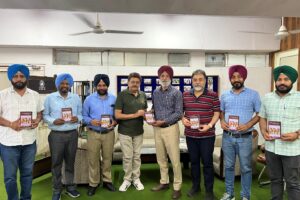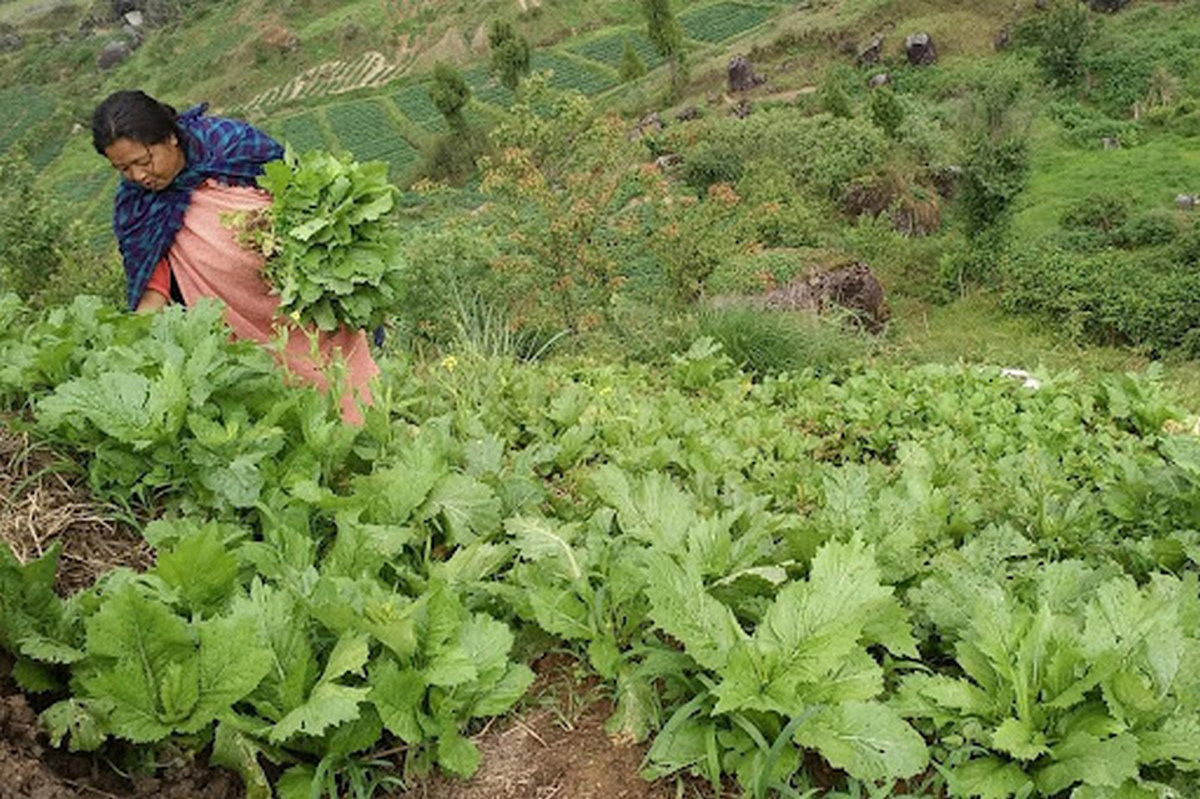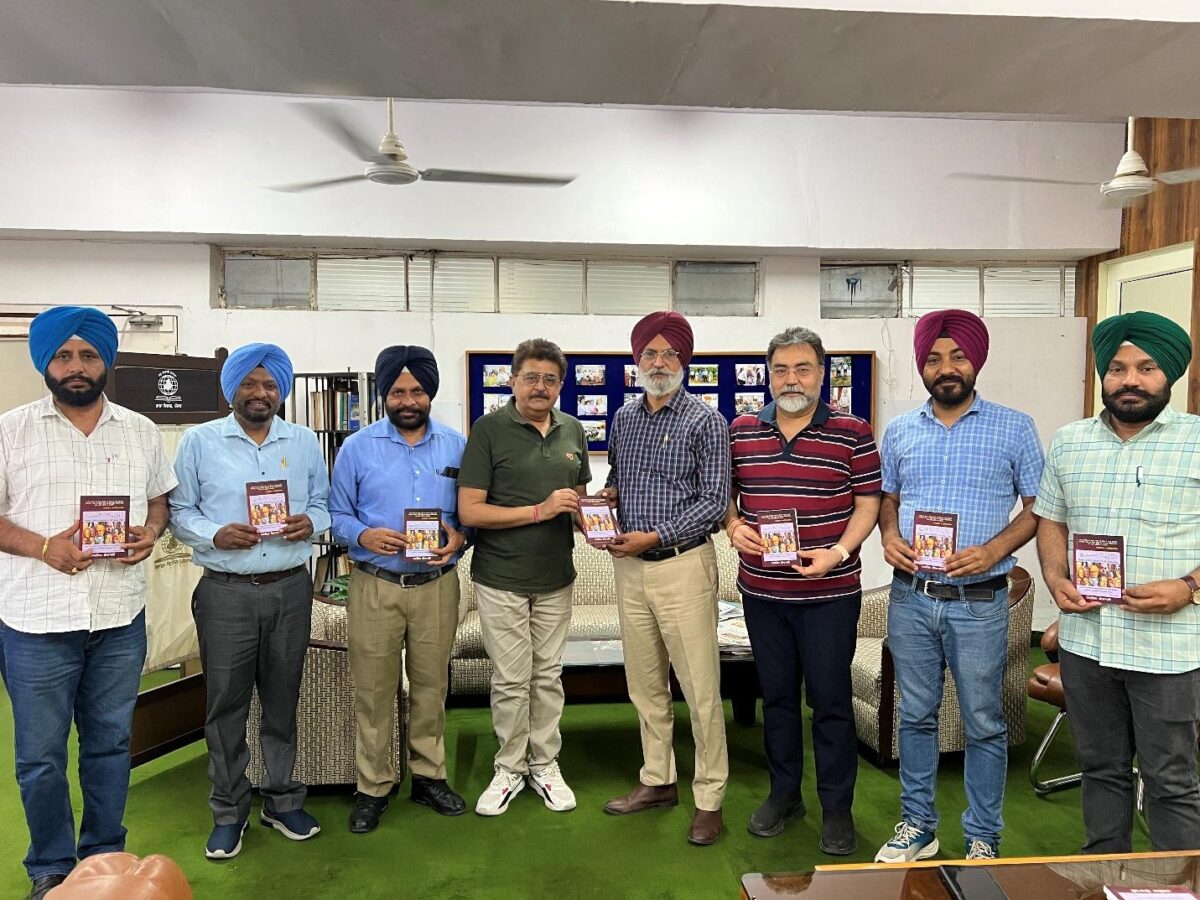Salil Gewali
Every moment can teach us a new lesson. Every stranger we cross paths with can make us more humane. A few days ago, I met a woman going from house to house selling mustard greens, locally known as “laipatta”. “Didi laipatta”, Didi laipatta” (roughly translated as — “Hello sister mustard greens) was her humble shouts. This is her only way for her to draw the attention of people inside their homes. The lady, a mother of four, probably not older than thirty-five, is from a distant village in Mawsynram of East Khasi Hills (India). What makes her take the trouble to travel all the way certainly calls for a case study, though that will never happen.
After my frequent meetings with the lady on the by-roads, one day I inquired about her. She told me that she comes to Shillong town these days to sell mustard greens. With a distressed expression on her face, she introduced herself as Daphi. I learnt the lady has a poignant story. Her husband, the main breadwinner in the family, has suddenly succumbed to a terminal illness, rendering him bedridden and unable to work for the past eight months. Hearing about her plight, I became more concerned.
She informed me that as soon as she gets off the bus, she usually goes from door to door and shouting, to sell her leafy greens until she sells them all. Looking at her cotton bag I guessed she could hardly bring 35 bunches of those mustard greens in a day. Her weary and tired look, possibly from poorly eaten, made me ask a few more questions. Without a hitch, she answered them all. I noticed she felt good sharing her agonies with a good listener even though a stranger.
I was very excited when she told me that all these succulent bunches were from her own garden. She informed me she gets up around 4 a.m. to pluck the foliage alone because she does not want to disturb the sleep of her children.
Then she waits for a bus to the town (Shillong). The one-way bus fare from Mawsynram to Shillong town is Rs 100. She spends an additional Rs 100 to get back home. All these expenses, including tea and snacks if she would take, eat significantly into her meager earnings.
During the conversation, she pointedly hinted that people reduce a verdant bunch price of greens to even Rs 10/-. She says “If I ask Rs 30 per bunch, I hardly find generous buyers, and I would be forced to take back home the unsold vegetables.” I felt a surge of empathy come over me. I concluded that at the maximum she can sell that bagful of greens between Rs 450/- to Rs 550/- to the tight-fisted buyers of the town.
Now just objectively analyze the sweat and labour she puts in, starting from seed germination until these green leaves are harvested. With manuring, day-to-day care, including fending off grazing animals and harmful worms, a cultivator like Daphi invariably lives through pangs of uncertainty. Any moment nature’s fury can destroy the whole crops.
Now look at the situation! Even after harvesting their crops, farmers have to carry a load of worries about whether they will find good customers who will buy their vegetables without “bargaining”. Just imagine again her labour of going around every nook and corner of the town’s localities to sell her mere one bagful of vegetables. Just visualize that Daphi is your own sister or your mother. May I ask a modern economist, if each bunch of mustard leaves is not worth more than Rs 100? Sadly, there is no Karl Marx now to evaluate the true worth of the sweat of the oppressed cultivator! It’s really ironic that pseudo-Marxists these days drive swanky cars and hop into posh shopping malls even to take fruit juice and buy one kg of French beans. Amidst all the luxuries and endless digital fun, the kindness has virtually taken leave of the urbane folks.
Two days ago, when I presented the lady with some winter clothes and 4 caps for her kids, she murmured — “Ani mama, ani mama” with full of emotion. Yes, with eyes teary eyes and face blushed, she did not want to accept my gifts at first. However, I very humbly persuaded her to accept them. Daphi emotionally expressed her thanks, extending her hand for handshakes many times. Her expression of gratitude can’t be expressed in words here.
Please note that there are hundreds of DAPHIES coming from Umsning, Sohiong, Laitkor, Mawngap, (villages near Shillong town) who regularly visit our homes and shout from our gates for our attention, maybe for compassion too.
How good would it be if we bought their vegetables and fruits “without a bargain”? If possible, we could even offer them a cup of tea, snacks, and a few words of comfort. I am sure blessings will come from them, and the blessings will come down from heaven!
******
An India-based writer and researcher, Salil Gewali is best known for his research-based work entitled ‘Great Minds on India’ that has earned worldwide appreciation. Translated into thirteen languages, his book has been prefaced by a NASA chief scientist – Dr. Kamlesh Lulla of Houston, USA. Gewali is also a member of the International Human Rights Commission, Zürich, Switzerland.
Views: 0





































Heart-touching article. The rich should be compassionate towards the underprivileged.